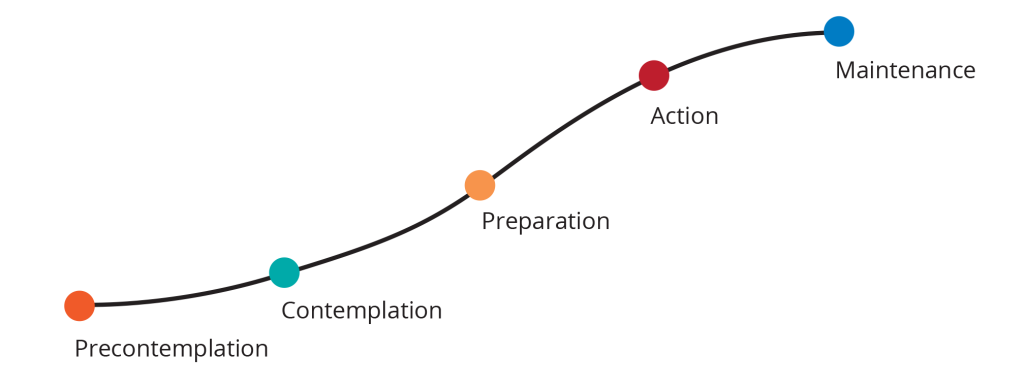Stages of Change
What does Stages of Change tell us about behavior?
The Stages of Change (sometimes called the Transtheoretical Model) tells us that individuals go through different stages when changing a behavior. This theory assumes that individuals have different degrees of motivation and readiness to change, which determine their current stage of change. According to this theory, different stages of change require different information needs and approaches to try and move the audience to the following stage. Although people may move through these stages in a predictable way, an individual can drop back or jump over stages. The stages are:
Precontemplation: There is no intention to change behavior in the future. (For example, Awa is not thinking about using contraception to avoid unintended pregnancy.)
Contemplation: An individual is aware that the problem exists and is seriously thinking about overcoming it, but has not yet made a commitment to take action. (For example, Awa has learned about contraception and is thinking about starting to use it.)
Preparation: An individual intends to take action immediately. (For example, Awa is planning to go to the health facility this month to start using contraception.)
Action: An individual begins performing the behavior. (For example, Awa starts using contraception to avoid unintended pregnancy.)
Maintenance: An individual continues the behavior and works to maintain it. (For example, Awa continues using the contraception of her choice consistently and correctly.)
Some SBCC professionals have added a sixth stage to this model – Advocacy. Advocacy is the stage in which Awa is maintaining her use of contraception, as well as promoting the benefits of contraception to her friends and encouraging them to try it, too.
How can Stages of Change be applied?
Stages of Change can be used in one-to-one situations, for example, between a client and a counselor. Knowing the stage of change of the client can help the counselor select what information to share. Information at the precontemplation and contemplation stages would focus on facts, the risks of the current behavior and the benefits of changing behavior. At the preparation and action phases, it would focus more on opportunities for changing behavior and how to access them.


